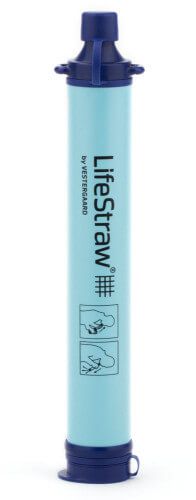According to Unicef, 2.6 billion people have gained access to improved drinking water since 1990. Unfortunately, as of 2015, 663 million people – 1 in ten – still drank water from non-potable sources. Nearly half of the people without clean water reside in sub-Saharan Africa. And access to clean water has become even harder due to climate change.
A remarkable product called LifeStraw aims to eradicate the consumption of contaminated water. In 1995, the Carter Center asked Vestergaard – LifeStraw’s parent company – to create a filter to remove Guinea worm larvae from water. Vestergaard devised a cloth filter to strain out the worm larvae. By 1999, the cloth filter had developed into an even more effective pipe form, leading to the development of LifeStraw. Today, the use of more than 37 million LifeStraw products to purify water has nearly eliminated Guinea worm disease.
Currently, LifeStraw products decontaminate water in 64 countries. The LifeStraw “Follow the Liters” program began in 2014 to provide clean water for those who do not have potable water. Part of the proceeds of each sale is used to purchase a LifeStraw Community purifier for a school in a developing country. When someone buys a LifeStraw product they are providing clean water to a student for a school year.
Smaller LifeStraw units can be used for recreational activities like group camping and hiking expeditions. The individual-sized device easily fits into personal backpacks. It can clean 1,000 liters of water and is perfect for emergency preparedness.

Individual LifeStraw, Photo Courtesy of LifeStraw
People can also choose from a variety of programs to donate LifeStraw clean water products to schools in Argentina, Brazil, India, Haiti and Kenya. LifeStraw has also set up hurricane relief programs for Puerto Rico and the Caribbean islands to purify the water polluted by microbiological contaminants after the natural disasters (see the bottom of their homepage).
The LifeStraw mission is to reach out to governments, donors and individuals to collaborate in the effort to provide potable water to developing nations. Each year brings them closer to their objective of worldwide clean water.






